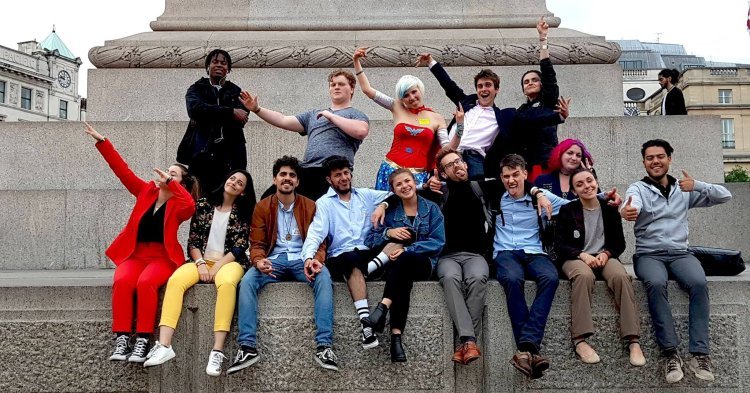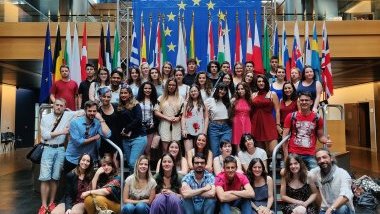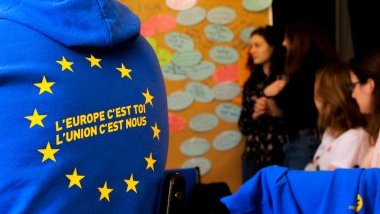The project was organised by Momentum World, an organisation arranging international experiences for young people. It combined Structured Dialogue with training young people to organise events. The schedule was built around the themes of teambuilding, preparation for the conference, the conference itself, and debrief, with each theme getting one day in the programme.
Monitored by full-time employees, the participants to the residential seminar were tasked with organising a conference in one day, together with people they had only met a day earlier. Participants, the venue, speakers and the equipment had been pre-arranged, but after initial instructions, the logistics, hosting and substantive programme were prepared by the participants rather independently.
The seminar was attended by both young people and professionals from across the UK. Alongside discussions on the conference themes, the programme featured speeches from Sir Ciarán Devane, Chief Executive of the British Council; Daniel Ambrus, Deputy Head of the European Commission Representation in the UK; and Tom Brake, the Liberal Democrat spokesperson on Europe. Young European of the Year Madeleina Kay’s guest performance completed the line-up.
Heard the words ‘youth engagement’ too often? It’s still for a reason
Three residential seminar participants were selected as speakers at a conference panel discussion. Three professionals asked questions of the participants, mainly covering youth engagement. This reflects how overall, the topic of providing youth with international experiences was an overarching theme at the event, with the four policy-oriented themes rather servicing the overall objective. As one of the panellists, I contrasted structured programmes such as Comenius (now part of Erasmus+) with the idea of sending people off to Interrail with a free ticket: a programme with more pedagogical content is likely to be richer, as one is guaranteed to meet others, and to engage in conversation rather than mere small talk.
‘Youth engagement’ sounds like something of a cliché. Since I became involved in European affairs, I have had to witness countless group discussions that failed to reach any detailed conclusion, and which resorted to a fallback conclusion along the lines of “we really need to engage young people”. That doesn’t mean Erasmus+ isn’t making a difference. As I pointed out in the panel discussion, 30 years into Erasmus we are now entering an era when our state leaders have gone on Erasmus. Elites have always been international, but you can’t avoid thinking that that might help leaders look at Europe from a different perspective.
More than just a head fake
In high school, I attended an International Student Leadership Institute conference twice, once as an attendee and once as an organiser. At the end of my first ISLI experience, the participants who had been selected as the organisers of the following year’s edition were let in on a secret: the main purpose of ISLI is not to train leadership skills to the 120-or-so attendees, but to offer an opportunity to the dozen students organising the conference.
Was Future Europe Future You another ISLI, a project that seeks make a difference, but primarily to a rather limited number of people? Not really. [1] Although Structured Dialogue is about hearing young people in policy-making, there is more to it. The Future Europe Future You project aimed to “increase young people’s visibility and credibility” and to ‘showcase the impact of non-formal education’, among other things. The project achieved that.
In the end, participants came to Europe House to learn and be inspired, rather than being there to make the young conference organisers feel good. The conference showcased to professionals that undertaking youth initiatives may be worthwhile for them, too. As a result of the event, a high-level political party representative approached Momentum World to arrange a discussion on international opportunities for young people. In another example, the event helped inspire one attendee to develop programmes for giving international experiences to British fire cadets, among whom there are thousands who have never had such experiences before.
Oftentimes the centre of attention was the classroom-size group of young people who organised the Europe House conference, but the project sought and may well achieve broader impact. 500 million Europeans are not made in one day, but Future Europe Future You was one helpful push towards the big goal.




Follow the comments: |
|
